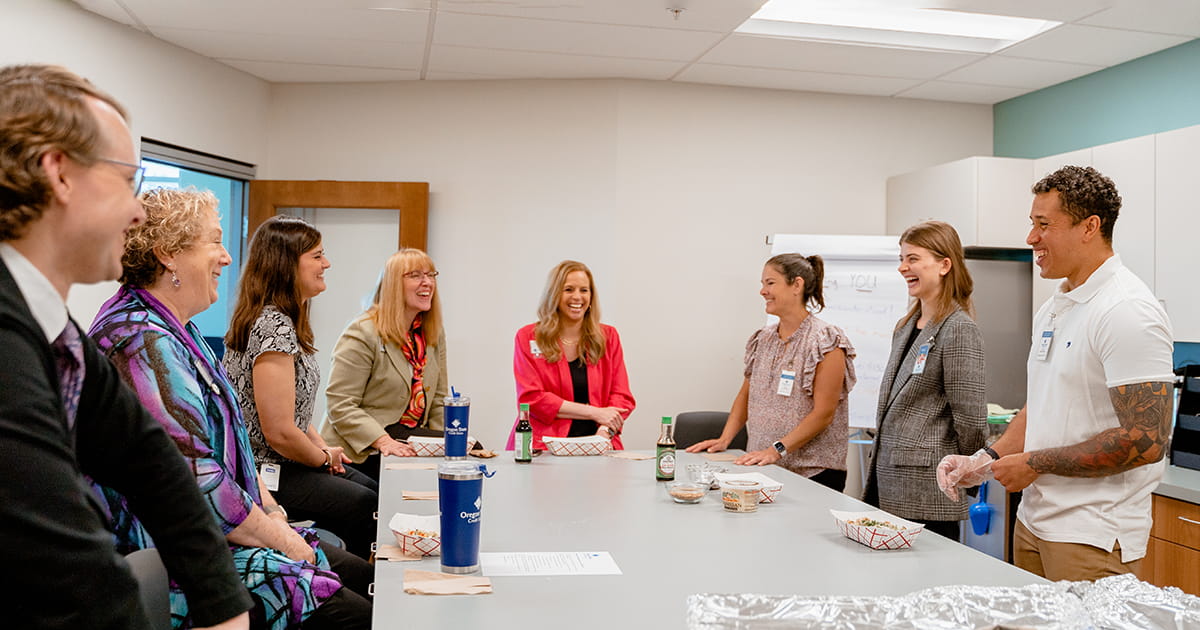
Does the food you eat have a return on investment? Neilann Horner thinks so, and she and nutrition students are sharing that return with about 30 employees at Oregon State Credit Union’s (OSCU) corporate office in Corvallis.
A clinical associate professor and nutrition program director at Oregon State University, Neilann recently launched ROI (Return on Ingestion), a six-week workplace wellness program using evidence-based nutrition principles. It’s offered by the college’s nutrition program in partnership with OSCU and Pacific Source.
According to Neilann, “We have really found a win-win-win solution for our students and community partners. OSCU and Pacific Source are funding these curated experiential offerings for employees in an effort to improve self-care, encourage employees to pursue covered services that address nutrition-related disease prevention and management, and control health care costs related to progressive preventable illness.”
During each week’s tasting event, James Shepherd, a professional chef pursuing his Registered Dietitian Nutritionist credential through OSU’s Master of Science-Professional Dietetics Program, and Neilann, a Registered Dietitian Nutritionist, experience and discuss a healthy dish and how to apply the healthful aspects of the recipe more broadly at home. Some of the topics discussed include finding your flavors, boosting fruit and vegetable intake, selecting healthful carbohydrates and fats, making food swaps with positive impact, using nutrition labels and simply enjoying food that supports optimal health. Undergraduate students have also produced video recipes in the Nutrition and Social Marketing course, which are used in the program and their personal portfolios.
In addition to tasting events, participants also have access to resources, including evidence-based blogs, a forum discussion, a friendly competition toward a grand prize, and photo sharing. Pre- and post-surveys inform program assessment and opportunities for quality improvement.